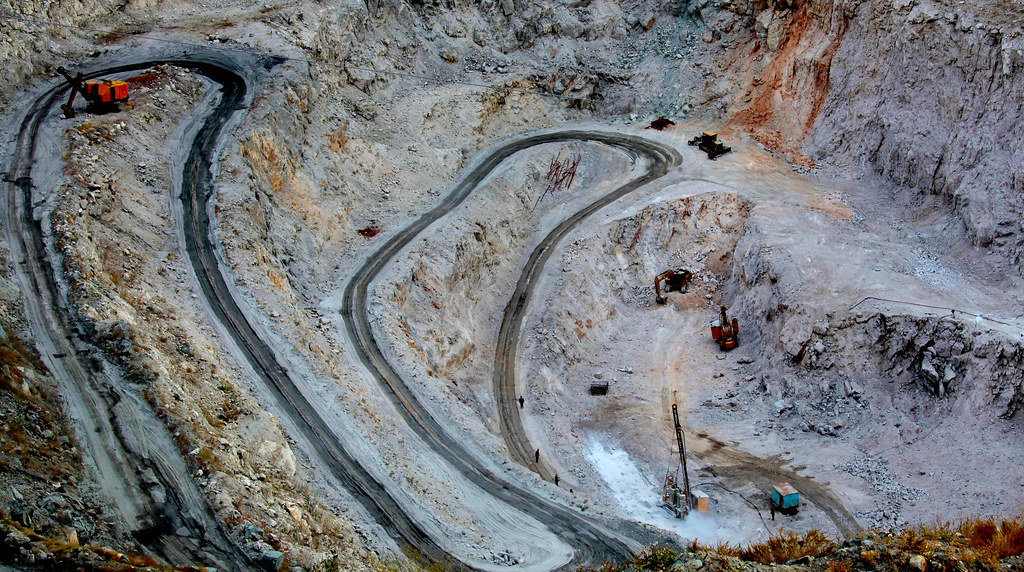Thus Brazil will challenge China on rare earths. Reuters reports

With vast reserves, Brazil wants to build a rare earth industry and position itself as an alternative supplier to China for Western countries. Reuters' point
Mining giant Brazil has big ambitions to build a rare earths industry, as Western economies seek to secure metals needed for magnets used in green energy and defense and break China's dominance in the supply chain , writes the Reuters agency.
To its advantage are low labor costs, clean energy, well-established regulations and proximity to end markets, including Latin America's first magnet plant that would provide a ready buyer for the metals.
But low rare earth prices, technical challenges and nervous financiers are putting a strain on the Latin American nation's hopes of being among the world's top five rare earth producers.
The pace at which Brazilian rare earth projects come to fruition will be a test of how well the West can build a new advanced industry almost from scratch to break China's grip.
BRAZIL AND RARE EARTHS
Brazil holds the world's third largest reserves of rare earths. The country's first rare earth mine, Serra Verde, began commercial production this year. “I think that, outside of China, Brazilian projects are the cheapest greenfield projects available.”
The United States and its allies, which depend almost entirely on China for rare earth metals and magnets, have agreed to build a separate supply chain by 2027 after supplies were disrupted during the COVID-19 pandemic at beginning of this decade.
China produced 240,000 tons of rare earths last year, more than five times the next largest producer, the United States, according to data from the U.S. Geological Survey. The country turns about 90% of the global supply of rare earths into permanent magnets used in everything from wind turbines to electric vehicles and missiles.
For countries like Australia, Vietnam and Brazil trying to catch up, progress is slow. Serra Verde took 15 years to go into production. It expects production of 5,000 tonnes once it starts and could double production by 2030, its CEO said.
Brazil could have two or three more rare earth mines by 2030, potentially surpassing Australia's current annual production, said Reg Spencer, an analyst at broker Canaccord.
THE PRICES PROBLEM
A major obstacle is the 70% collapse in rare earth prices over the past two years, which has made it difficult for companies to raise funds for mining and processing.
In March, the US Export-Import Bank (EXIM) expressed interest in providing Meteoric with up to $250 million for the project. The company also has a preliminary agreement to supply rare earth oxides to a separation plant in Estonia operated by Toronto-listed Neo Performance Materials.
Brazilian Rare Earths, open a new tab, is also in the early stages of developing a large rare earth deposit in the country's north-east, backed by Australia's richest person, Gina Rinehart.
Its chief executive, Bernardo Da Veiga, pointed to Brazil's low operating costs as an advantage over rivals such as Australia, where he said a truck driver at an iron ore mine would earn up to 200,000 Australian dollars ($133,200 ) per year plus room and board.
“The same truck driver in Brazil, who does the same job, makes about $15,000 a year and bikes to work and brings his lunch. There's just no comparison."
TECHNICAL OBSTACLES
While labor is cheap, developers face technical hurdles. Unlike China, many Western companies are still perfecting the complex processes of producing rare earth metals, a costly challenge that has stalled projects for years.
To spur development, the Brazilian government launched a 1 billion reais ($194.53 million) fund in February to finance strategic minerals projects, including rare earths.
The Ministry of Mines and Energy has said it wants to create an industry to transform these minerals into alloys for batteries, wind turbines and electric motors.
Brazil is also building a magnet factory that is expected to come online at the end of the year as a proof of concept, said Flavio Roscoe, president of the State Federation of Industries of Minas Gerais (FIEMG).
“Our goal is to be a developer and multiplier of this technology,” Roscoe said. “Brazil has the opportunity to be the global option for China.”
(Excerpt from the eprcomunicazione press review)
This is a machine translation from Italian language of a post published on Start Magazine at the URL https://www.startmag.it/energia/brasile-terre-rare/ on Sat, 22 Jun 2024 04:13:51 +0000.
